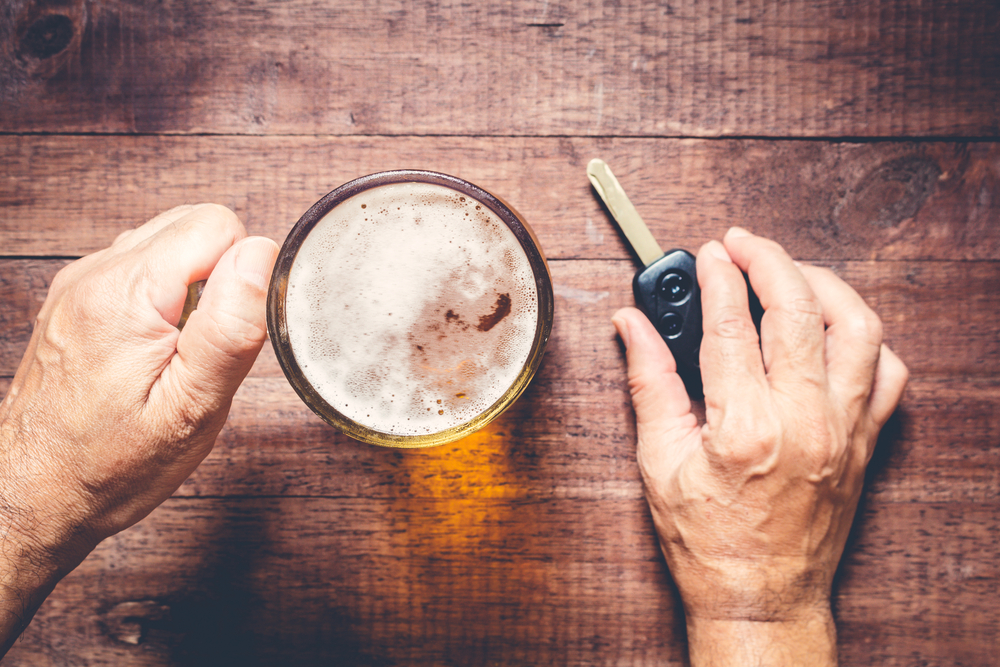What To Do After a DWI Charge
Being charged with DWI (Driving While Intoxicated) is a serious offense that can have life changing consequences. A DWI charge’s potential legal penalties, financial costs, and personal impact can be overwhelming. We understand the stress and uncertainty you may feel if charged with or convicted of DWI.
If you find yourself in this position, seeking guidance from an experienced DWI defense attorney who can provide personalized advice tailored to your situation is absolutely critical. With over 40 years of experience serving clients in Rochester, NY, Thomas A. Corletta, Attorney at Law, has a complete understanding of DWI cases and can provide you with experienced and aggressive legal representation.
This blog post will provide you with vital information and actionable steps to take following a DWI arrest.
Understanding DWI Lookback Periods
One of the most important aspects of any DWI charge that individuals must understand is the DWI “lookback” period. Lookback periods refer to the time frame within which prior DWI offenses can effect potential penalties on a new charge.
In New York, the basic lookback period is ten years. This means that any previous DWI conviction within the previous ten years will elevate the new charge to felony status, with greater potential penalties.
Prior convictions can lead to enhanced penalties, such as a longer license revocation, higher fines, mandatory alcohol education programs, and usually probation, which lengthens the loss of license. Multiple prior convictions can result in incarceration; either local or on the state level.
There are several other lookback periods involving periods of loss of license. You should discuss these with an experienced DWI defense attorney, like Mr. Corletta.
Accidents Involving DWIs
The legal implications become even more significant when a DWI charge involves an accident where there is injury or property damage. DWI is a crime not a traffic infraction, with criminal consequences extending far beyond traffic-related penalties. In other words, it is not a traffic ticket.
DWI accidents that cause severe injuries, or even fatalities are complicated. They are usually higher grade felonies. The potential consequences for DWI charges involving accidents can include substantial fines, imprisonment or probation, mandatory alcohol or substance abuse evaluations, license revocation, heightened insurance premiums, and civil consequences; such as being sued for personal injuries.
Navigating the Legal System
Given the seriousness of these cases, obtaining legal representation from an experienced DWI attorney is of paramount importance. They can investigate the circumstances, investigate potential mitigating factors, challenge the evidence presented, and outline a viable defense strategy.
Navigating the legal system in a DWI accident case is complex. Having an attorney with expertise in DWI defense significantly improves your chances of obtaining a favorable and fair outcome.
3 Steps To Take
When facing a DWI charge, taking immediate action and following specific steps to protect your rights and build a strong defense is essential. Here are three important steps you should take after a DWI arrest:
Step 1: Write Everything Down
After a DWI arrest, it is important to write down everything that happened during the arrest process. Document as many details as possible, including the events leading up to the stop and arrest. Your interaction with law enforcement, field sobriety tests, breath tests, and observations you made during the arrest process are very important and will be the subject of a complete interview with counsel.
Step 2: Stay Off Social Media
In today’s age of posting, likes, and surveillance, it is important to be cautious about what you post on social media, especially after a DWI arrest. Anything you post can be used against you. Even seemingly innocent posts or photos can be misconstrued and used by the Prosecutor to challenge your credibility or undermine your defense. Avoid posting pictures of parties, going to bars, or drinking.
Step 3: Find Potential Witnesses
Identifying potential witnesses who can help in your defense is important to building a strong defense strategy. Eyewitness testimony can offer valuable information about your sobriety at the time of the arrest, the conduct of law enforcement officers, and other details that can impact your case. This usually comes from a passenger or bystander. However, you must proceed with caution, particularly if the passenger has been drinking or has a prior criminal record or DWI convictions.
Take Action
We understand the challenges you may be facing during this difficult time. We recommend consulting with an experienced DWI defense attorney such as Thomas A. Corletta, Attorney at Law. With over 40 years of experience, Mr. Corletta can provide personalized guidance and expert representation to protect your rights and help you navigate the complexities of your DWI case. Call him today at (585) 546-5072.

